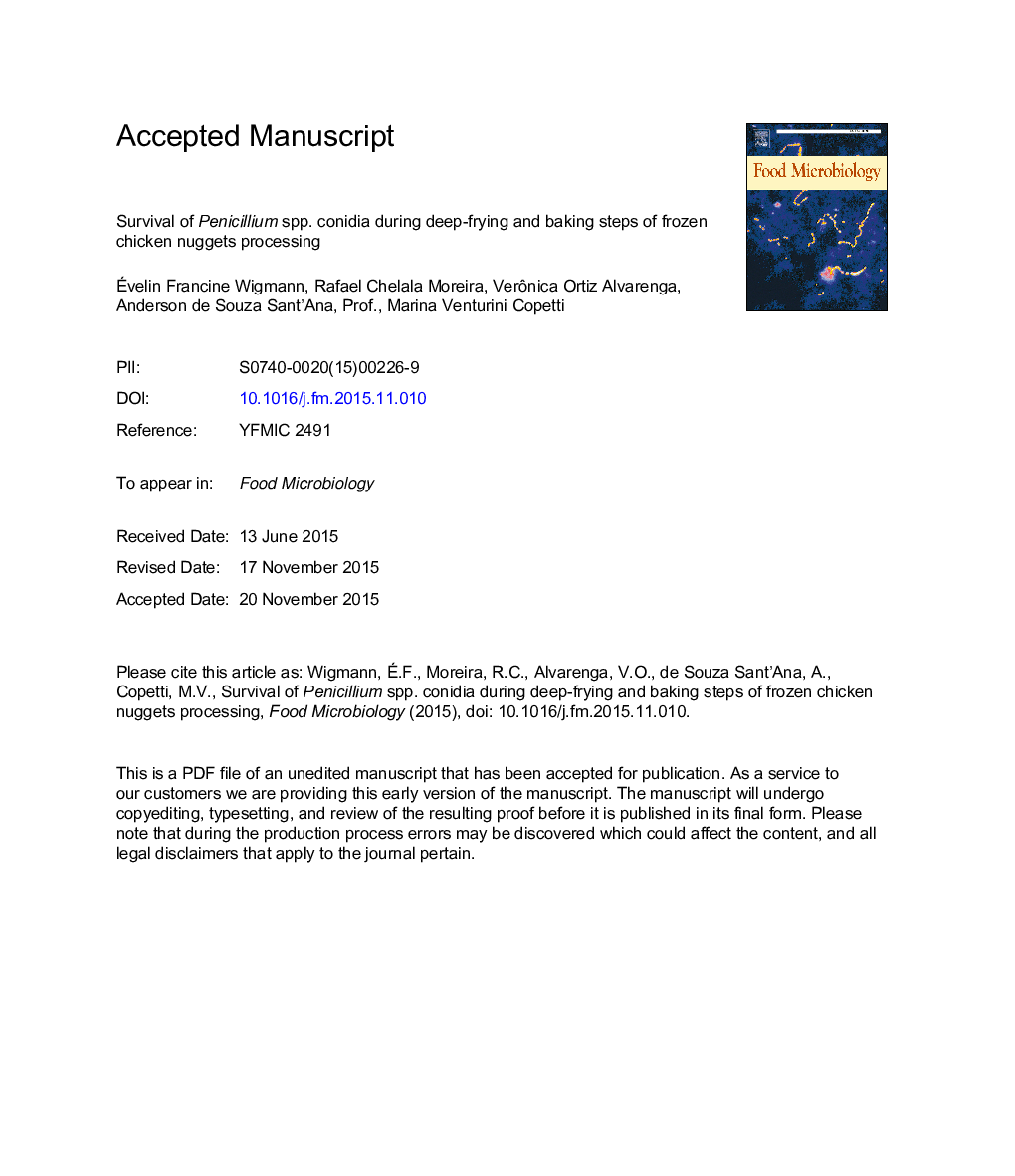| Article ID | Journal | Published Year | Pages | File Type |
|---|---|---|---|---|
| 6288409 | Food Microbiology | 2016 | 26 Pages |
Abstract
This study aimed at determining whether Penicillium spp. strains could survive through the heat treatment applied during the processing of frozen chicken nuggets. Firstly, it was found that the conidia of Penicillium were not able to survive the heat shock in phosphate buffer at pH 7.2 in thermal death tubes (TDT) at 80 °C/30 min. Subsequently, each Penicillium strain was inoculated in frozen chicken nuggets, which were subjected to the following treatments: i) only deep frying (frying oil at 195-200 °C), ii) only baking (120-130 °C until the internal temperature reached 70 °C) and iii) deep frying followed by baking (frying oil temperature of 195-200 °C and baking temperature of 120-130 °C, until the internal temperature reached 70 °C). The results indicated that Penicillium polonicum NGT 23/12, Penicillium commune NGT 16/12, Penicillium solitum NGT 30/12 and Penicillium crustosum NGT 51/12 were able to survive after the combined treatment (deep frying followed by baking) when inoculated in chicken nuggets. P. polonicum NGT 23/12 was the most resistant strain to the combined treatment (deep frying and baking), as its population was reduced by 3 log cycles CFU/g, when the internal temperature reached 78 °C after 10 min and 30 s of baking. The present data show that if Penicillium spp. is present in high numbers in raw materials, such as breading flours, it will survive the thermal processing applied during chicken nuggets production.
Related Topics
Life Sciences
Agricultural and Biological Sciences
Food Science
Authors
Ãvelin Francine Wigmann, Rafael Chelala Moreira, Verônica Ortiz Alvarenga, Anderson S. Sant'Ana, Marina Venturini Copetti,
